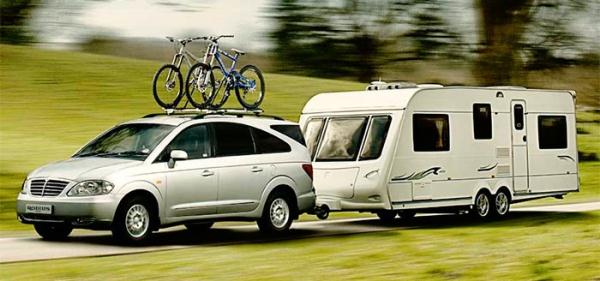WHEN holidays come around it’s good to think about the safety of you and your family.
So to ensure you get to your destinations safely here are a few tips:
– Prepare your car – have it serviced and check that you’re prepared for emergencies with a blanket, torch and first aid kit.
– Prepare yourself – be rested before a long drive, plan the trip so you share the driving and take regular breaks to avoid fatigue.
– If you plan to have a drink – plan not to drive.
– If you have children in the car ensure they are in the appropriate child restraint.
– If you’re travelling with pets make sure they are restrained – for everybody’s safety.
– Tow check when towing a trailer or caravan.
– Brush up on good driving techniques.
Driver fatigue:
WHEN setting off on a long trip don’t leave too early in the morning because your body clock believes you should still be asleep. Have a 15-minute rest every two hours.
On a long trip, especially in holiday season, there are Driver Reviver stops which provide a cup of tea or coffee, so make sure you take advantage of them.
Tow check:
IF towing a trailer or caravan inspect:
– Tyre condition and tyre inflation – including spare.
– Towbar and towing equipment is secure.
– All electrical connections are secure and lights work correctly.
– Trailer brakes work correctly.
– Rear view mirrors are adjusted correctly.
Safe driving:
MAINTAIN a safe distance between your car and the car in front
It’s a good idea to always keep a minimum three seconds gap between you and the car in front. When it’s raining and/or foggy double the distance to six seconds no matter what speed you’re doing.
Smooth driving:
DON’T rush into things. Plan ahead when driving. Make early decisions on braking and accelerating. Change gears and brake smoothly to avoid skidding. This will provide a smoother drive for yourself and your passengers while also providing less wear and tear on the vehicle and helping you save on fuel costs.
Keep left:
WHEN driving on a dual lane road always keep to the left lane. Use the right hand lane for overtaking; turning right or when roadworks are being carried out and there is no other choice.
Indicate early
Always indicate when changing lanes, 30 metres wherever practical, to advise other motorists of what you are doing.
Expect the unexpected
DRIVE with your line of sight parallel to the road not looking down onto it. By doing this you see further into the distance so you can be better prepared if there is a problem ahead. It may even mean you can avoid a crash.
Overtaking
ENSURE you have enough room to go past the vehicle you are overtaking and not cut them off. Pick you time carefully as overtaking can be quite dangerous and making the wrong decision may result in a serious crash.
Slow down early
ALWAYS slow down coming to an intersection especially if you are towing a van. Your braking distance will be greater than when you’re not towing, so make sure you allow for this. You must stop on a stop sign/line.
Driving at night
DRIVING at night requires more skill and concentration than at daytime due to your restricted vision. Oncoming headlights can obscure your vision and pedestrians can be near impossible to see. Leave a bigger gap between you and the car in front to allow for your reduced vision and reaction time.
Road rage
STAY relaxed and try not to let other people’s driving skills or decisions worry you. If another driver makes a mistake don’t get angry just concentrate on your own driving skills, behavior and safety.
If another driver is courteous towards you, then acknowledge the good deed with a wave.







